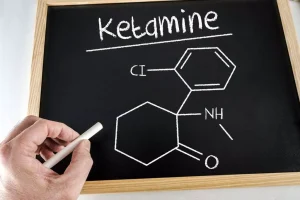Mastering Relapse Prevention Planning: Your Guide to Sustained Recovery

With more effective coping, the patient develops increased confidence to handle challenging situations without alcohol and other drugs (i.e., increased self-efficacy). This may vary from person to person and be influenced by things such as extent and length of use. Talking openly about a lapse or relapse with a care team can help you develop and strengthen your relapse prevention plan and identify how to get back on track with your recovery goals.
What are some effective relapse prevention strategies?

This environment of compassion and empathy is the bedrock for open, constructive communication. It is here that the foundation of unconditional support is laid, ensuring that the recovery process is met with patience and understanding rather than power struggles. By taking the time to understand what happened, individuals can learn from the experience and develop strategies to prevent future relapses.
Support for Me and My Family
- After gaining insight into the factors contributing to relapse, it’s essential to adjust your relapse prevention plan accordingly.
- To gain an in-depth understanding of interventions, tools, and resources available focused on maintaining recovery and preventing relapse for patients with anxiety and/or depression symptoms following guided self-help (GSH).
- Cognitive-behavioral therapy entails examining life experiences and thought patterns, and reshaping one’s thinking positively rather than succumbing to negative self-talk.
- However, when examining those with PTSD, the prevalence of SUD escalates to as high as 35 percent, while alcohol use disorder (AUD) stands at 52 percent.
Substance abuse and mental health expert Terry Gorski has a nine-step relapse prevention plan that can help you recognize and manage relapse warning signs. Alan Marlatt, PhD, developed an approach that uses mental, behavioral, and lifestyle choices to prevent relapse. A relapse prevention plan plays a vital role in mitigating the risk of relapse and supporting individuals in maintaining their recovery goals. These relapse prevention skills skills encompass a range of strategies, from self-awareness and coping mechanisms to building a robust support network and implementing healthy routines. Structured therapies have combined Relapse Prevention (RP) in a group format with individual sessions of motivational interviewing in adolescents with cannabis use disorder (motivational enhancement therapy and cognitive behavioral therapy, or MET/CBT).
What Are The Three Stages of Relapse?
- Some practitioners delivering low-intensity treatment may discuss relapse prevention throughout the course of treatment to ensure sufficient time is provided to any relapse prevention work (Papworth & Marrinan, 2018).
- Continued brief support after treatment – A follow-up was also an integral feature for relapse prevention as this component was included in five of six relapse prevention tools and interventions.
- A scoping review does not seek to assess the quality of the evidence (Arksey & O’Malley, 2005; Pham et al., 2014) but rather provide an overview of all existing evidence related to a certain topic (Tricco et al., 2016).
- By making positive daily choices, you reinforce your commitment to change and reduce the likelihood of emotional relapse.
Your relapse prevention plan can detail how you will connect with loved ones who supported you through the treatment process. Try your best to plan regular get-togethers with friends and family, as avoiding isolation and bolstering these relationships can make recovery easier. Addiction recovery is a journey that extends beyond initial treatment, involving continuous commitment and proactive planning. Relapse prevention planning helps maintain long-term recovery by identifying potential triggers and creating actionable responses. This approach strengthens recovery for substance use disorders, behavioral addictions, mental health concerns, and other conditions. Providers have long recognized that relapse is a process rather than an event.
Continuously investing in your recovery will help you stay focused and motivated. Also, setting boundaries allows individuals to say no to situations or people that may trigger cravings or jeopardize their progress toward sobriety. It empowers them to prioritize self-care and prioritize their own needs, even if it means distancing themselves from certain people or situations.

Distraction Ideas for Cravings
- With repeated use, alterations in brain chemistry and functioning can result in the development of substance dependence.
- Lastly, even in the absence of explicit consequences for alcohol or drug use, knowing they may be subject to testing provides a measure of deterrence against relapses for some individuals.
- It’s a poignant moment when someone who has worked tirelessly to break free from addiction finds themselves slipping back into old patterns of behavior and substance use.
- The effort to choose your health and well-being every day is a great feat, so continue to reflect and pride yourself on your hard work.
- Anything that helps us healthfully manage and process our emotions is a great inclusion in a relapse prevention plan.

How Common Is Relapse?



Comments are Closed